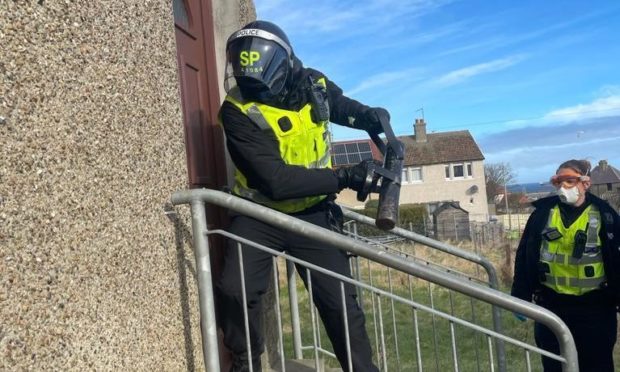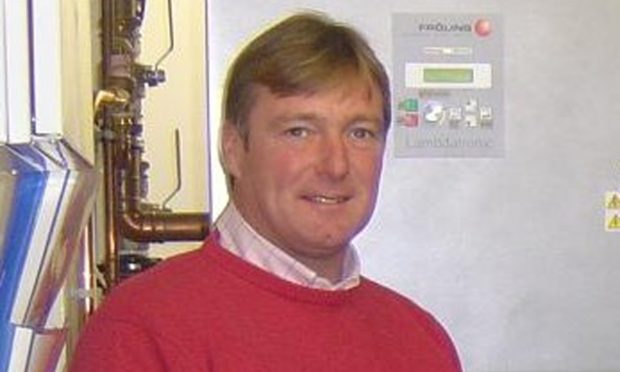Drug crimes in Dundee have fallen by more than a third in a year, according to new Police Scotland figures.
A total of 829 drug crimes were recorded in the city between April 1 2021 and the end of March this year, compared to 1,255 in the year prior – a fall of nearly 34%.
Across Scotland the number of such crimes dropped by 20% year-on-year – down 17.8% for supply offences and 20.6% for possessions – and fell by 15.8% on the five year mean.
Police Scotland’s performance report said the decrease was mainly due to drops in the months leading up to and during November last year, when competing demands such as preparation and policing of COP26, as well as staff absences due to Covid-19, restricted capacity in this area.
The report also said several successful police operations targeting high level organised crime have removed large volumes of equipment used in drug supply and taken large quantities of drugs off the streets.
It said since January 2020 a total of 24 pill presses have been recovered in Scotland as a result of operational activity.
The latest Police Scotland performance review figures show Dundee’s drug crime rate dropped from 84 to 55.5 per 10,000 people and is now much closer to the Scottish average of 50.7.
The city has been at the epicentre of Scotland’s drug deaths crisis in recent years and has one of the highest drug-related death rates in the country.
Earlier this year, a report by the Dundee Drugs Commission said the scale of the crisis has been “underestimated” and drastic improvements to key services will be essential if fatalities are to be brought down.
‘Prevention, education, enforcement’
The latest police figures showed that across Tayside policing division, there has been a 26% drop in recorded drug crimes.
In Perth and Kinross, the numbers fell from 549 to 436 – a 20% drop – while in Angus it fell very slightly from 271 to 269.
The drug crime rates in these two areas are much lower than Dundee.
Chief Superintendent Phil Davison, divisional commander for Tayside division, welcomed the reductions in drug possession and supply offences in the region.
He said: “We can not become complacent as the harm caused by drugs has significant impact across our communities, and we will therefore continue working closely with a range of partners to reduce such harms with a focus on prevention, education and enforcement activities.”
Superintendent Nicola Shepherd said enforcement, such as intelligence-led operations and foot patrols, is crucial to disrupting the activity of those involved in the supply of drugs.
She said it’s also vital that police and their partners continue to provide support to people with addictions to break the cycle of drug or substance misuse.
Officers also review intelligence on a daily basis to proactively target those involved in the sale, supply and distribution of drugs.
Superintendent Shepherd said: “Operation Argonite in Dundee continues its success to deliver a focus on county lines, cuckooing and safeguarding to those vulnerable to exploitation due to drug addiction.
“We have carried out a number of successful, proactive operations with drug paraphernalia and equipment being seized.
“We welcome any reduction in crime, however, that does not mean we will be complacent, we remain committed to breaking the cycle of drug misuse and will continue working closely with a range of partners to reduce such harms with a focus on prevention, education and enforcement activities.”
Other Tayside trends
In line with national trends, there has been a 27.5% increase in fraud and an 11.5% rise in violent crime in Tayside.
Drink or drug driving offences fell from 711 to 606 in the region – a near 15% fall compared to a national rise of almost 5%.
Tayside also reported a very small decrease in the number of sexual crimes being reported, contrary to a 14% overall rise in such reports across Scotland.
Dundee still has the second highest sexual crime rate in the country with 38.9 reports per 10,000, though the total number of reported sexual crimes there dropped year-on-year from 644 to 581.
Chief Sup Davison said: “The decrease in sexual crime offences this quarter is welcome as this is an area which remains a priority for us.
“The country and our region are continuing to readjust to life without the limitations we all faced as a result of the coronavirus pandemic.
“More than a year on from the most stringent of restrictions lifting, we are seeing crime returning to the kind of levels experienced prior to the public health crisis.
“While there have been fluctuations year-on-year, a great deal of proactive work is underway within the division to address the concerns of our residents and local businesses, and we remain committed to doing all we can to improve safety and wellbeing across our communities.
“This includes addressing the evolving face of fraud being perpetrated both in the real world and the cyber sphere.”










